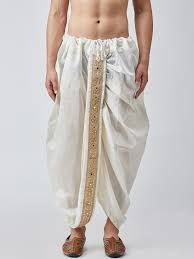Concept [ DON'T SKIP ]
If you wish to continue reading this book, please do not skip this chapter.
As a Bengali herself, I will be glad if people outside the Bengali community give this book a chance and get to know more about the divine beliefs and culture of this community. This book, even though not intricately portraying the lives of the Bong folk throws light on the aspects of faith. I shall make the concepts involved simpler by giving an explanation.
India has always been a country of diversity in every aspect, so faith in the divine was never an exception. People may choose to believe in some higher power or may not; they may choose to believe in one; they may choose to believe in many- it doesn't matter. From the very ancient times we have had various manifestations of god- human, animal, hybrid (hello fellow Egyptians), natural elements, abstract, etc. One of these manifestations is Adi Shakti. Shakti literally means 'power' and is a feminine energy. Adi Shakti herself has many manifestations, and we shall keep the topic restricted to one of her forms in this book.
From the medieval times Bengal has been a strong centre of Shaktism. It believed in the superiority of the Mother Goddess. The one form of Adi Shakti which has been the love and might of Bengal even to this day, that it's said that wherever a Bengali goes they will bring her with them, she's Maa Kali. You may also call her by other names like Kalika, Shyama, Dakshina Kali, Shamshan Kali, etc. Hereafter I will refer to her as Kali or Kalika.
The images of Kalika may be revolting to certain people, because many a times she is naked, dressed in animal skin and in the garlands of the demons she killed. To some it may also be badass, but whatever it may be to you, I assure there's no one so motherly and caring as her. A mother can be very ferocious when her children are in trouble and again can be very bubbly and sweet when she plays with them.
The reason behind the nudity and overall appearance of Kalika will be hard to explain in words, but I shall summarise in some few words to help you remember -
• Beyond the rules of human civilization
• Beyond the ignorance of ordinary mind
• The eternal, naked, undiluted, absolute Truth
• The absolute power of Time(Kaal means Time, so from there comes Kalika)
• Invincibility
Kalika's protruding tongue is a symbol of bloodlust that she succumbed to while defeating the demons. Alternatively, it is also associated with the shame she feels after realising she accidentally stepped on her beloved Shiva. (That guy was the only one who could have stopped her from creating havoc. Hats off to you, Shiva)
The Mother Goddess Kali or any other form of her is also very much associated with sexual power (its beautiful, liberated expression) and the vagina. The yoni or vagina is also worshipped as a form of the Mother Goddess as it is seen as a root of Shakti or power. The Mother Goddess also undergoes a cycle of menstruation, even though just once a year. During this time her body is undergoing rejuvenation, giving up the old and what is not required, channeling the divine energies of her body and paving way for the new. This time of the year is known as Amba Buchi. We do not disturb the Mother when she is menstruating and after she's done with the rejuvenation she is washed, made to wear new clothes and a celebration is done.
If you have read till this far, congratulations– the less sensitive topics have been discussed and you are ready to know more about the rest.
The worship of Kali is associated with Tantra. Tantra is incomplete without Shakti and the power of creation. You can describe Tantra in many ways- the quintessence of a belief, perfect knowledge, doctrine, practices and rituals, etc.
Anyone who wishes to worship Kali(like not regularly at home, you can always do that, but I mean as a priest) needs to know tantra. Tantra has various sects and stages. There are schools and teachers who teach students tantra so that they can take up this profession.
Now, let me talk about two sects of tantra - Dakshinachara and Vamachara. To my knowledge, the former is what you will find most people practising in Kolkata or anywhere where her temple is present. While Vamachara, due to various reasons, is not practised by the crowd and in public.
Vamachara involves the worship of Kalika through Panchatattva- five elements of madya(wine), mamsa(meat), matsya(fish), mudra(grain) and maithuna(sexual intercourse).
Yes, you read that right. Sexual intercourse. And that's where the beauty and the danger lives.
See, ancient India has never labelled sex as sinful. It was here that Kamasutra was born, which was itself derived from previous and even more ancient sources of such texts. These were not seen as erotic material but as texts of educational value that helped us learn more about conduct in this world and gave us spiritual awareness. There are temples and monuments which portray gala moments of love making too. It was, in one word, celebrated(not misused).
Sex is an exchange of energies. This activity can thus be upgraded or degraded depending on the way the energies are exchanged. It is we, not sex itself, who can make it more or less charming!
The followers of Vamachara are required to drink wine, eat meat, fish and grains and then perform the act of sex. The sexual act should be done with a pure mind. Look, love and passion are elements of life and it is completely okay to feel them, but do not ever confuse passion with lust. Lust is more destructive that often doesn't take into account consent. During maithuna, individuals consciously perform sex and strive towards the union of masculine and feminine energies, to become one and experience pleasure as a whole. They have a goal other than pleasing their bodies; the latter is a thing, but not the primary concern. The pleasure derived is more of a consequence of a beautiful union. It is a celebration, something as pure as the offering of God if you have the capability.
Now, we understand sex is something sacred, but it depends on us right as I had said before? Yes. And that is why Vamachara is dangerous.
Often while performing Maithuna a person indulges in animalistic pleasure. While Vamachara does say that the facing and fulfillment of desires is alright, but to label it as a divine act when actually you are just succumbing to your desires(the power of control has always been attractive here) and having a crude experience in the name of divinity, it becomes dangerous. See, eating food is necessary for survival but overeating is not good. Now connect this to the expression of sex.
This is why Maithuna has always been practiced secretly, by few groups of people who are capable of being clean in mind, devoid of derogatory thoughts while enacting it. Maithuna is NOT about easing our obsessive senses, it is about the thirst of divine unification and realising the good potential of sex.
Thus, any form of sex where there is a lack of consent, lust, one-night stands, casual encounters will not be called Maithuna and if someone tries to do all these things in the name of Maithuna then it's gonna be shameful and irresponsible. While a regular person can always do hookups, have casual sex(it's personal choice and I don't wanna be judgemental at present) the point here is to NOT CONFUSE Maithuna with any other for of pleasure.
Mother Kali has kept various paths open to worship her and we can always do that without pursuing Vamachara. Because one needs to be very enlightened and have a good understanding of details in order to pursue Vamachara.
This is where the sensitive issues end.
Apart from these concepts, you will find the names of various food and leafy vegetables, Ambassador (a car), of attires etc which I believe you can search on your own(sorry i am lazy XD). I can tell you about uttariya- it is a kind of shawl usually made of cotton, sometimes silk or linen. It is usually used by men in the contemporary era, though in ancient India women also used it. Another thing is saree, the go-to fashion statement for any Indian fashionista and more so for a Bengali girl.

This is ONE WAY to wear a saree(there are several others). An uncountable number of fabrics are used for making saree.
Dhoti is what men usually wear.


Two styles of wearing it(there are several others)
Beta is an endearment used by olders to call us peeps who are younger to them and like their children.
Babu is a word used to address a male who demands respect in the society.
Matrika means a Mother Goddess, not necessarily the absolute one but like the ray of the sun (if the sun is Adi Shakti).
Premika means a female lover. Premik is the male form.
Veshya means a prostitute.
Puja means the whole ritual and task of worshipping.
Prasad is the food which we offer to God and then eat as their blessings.
Shyama means dark or black.
Krishna is a God, an incarnation of Lord Vishnu (the preserver in the Tridev Trinity). He is dark in complexion and an epitome of beauty (and mischievous too).
Garbha griha is the sanctum sanctorum of the temple. Mandapa is like a room or a hall in a temple. There can be one or several mandapas.
Bhat: normal steamed rice
Sadhana: disciplined and dedicated practice
Kheer/ payesh: wet pudding. Kheer can also refer to dried whole milk.
Ghee: clarified butter
Bhog: the food that is given to the deity. It's an elaborate meal that consists(must) of a dish of rice– usually pulao or khichdi, accompanied by fries and curries.
Thali: plate
Janeu: a thread that Brahmins must wear. It is a symbol that they have been initiated in the caste. The thread is regarded as sacred and powerful.
Naiharwa: maiden home(a woman's abode before marriage)
Didimoni: a phrase used to address a lady of the house in a respectful manner, sometimes also used for calling a teacher
Piya: endearment for your beloved
Paapi: sinner
Ishti kutum: a bird, whose call sounds like it's saying 'ishti kutum'. If the bird comes on your terrace or veranda and then sings and calls, it is seen as an indication that some guest will be arriving at home. Kutum actually means guest or sometimes even refers to in-laws.
Apsara: a dancer(usually, though they might be good singers too, don't underestimate) in the court of the King of Devas whose title is Indra(and his abode is swarglok). Apsaras are companions to handsome semi-divine men of art named Gandharvas.
****
I hope this will be enough for now to ensure you, my lovely readers, will have a good journey ahead. If you have any questions now or while reading the book just ask me and I will try to answer based on my knowledge.
Even though this book is mystery, it has other overlapping themes like psychological aspects, religious horror and romance. AND this book has messages to give. Of course since this is about Kaika, women empowerment will be there and heavily impact the story, but at the end of the book you will know more.
I wish you a memorable journey ahead. Fall in love with the characters and get ready for crying :p
Bạn đang đọc truyện trên: AzTruyen.Top